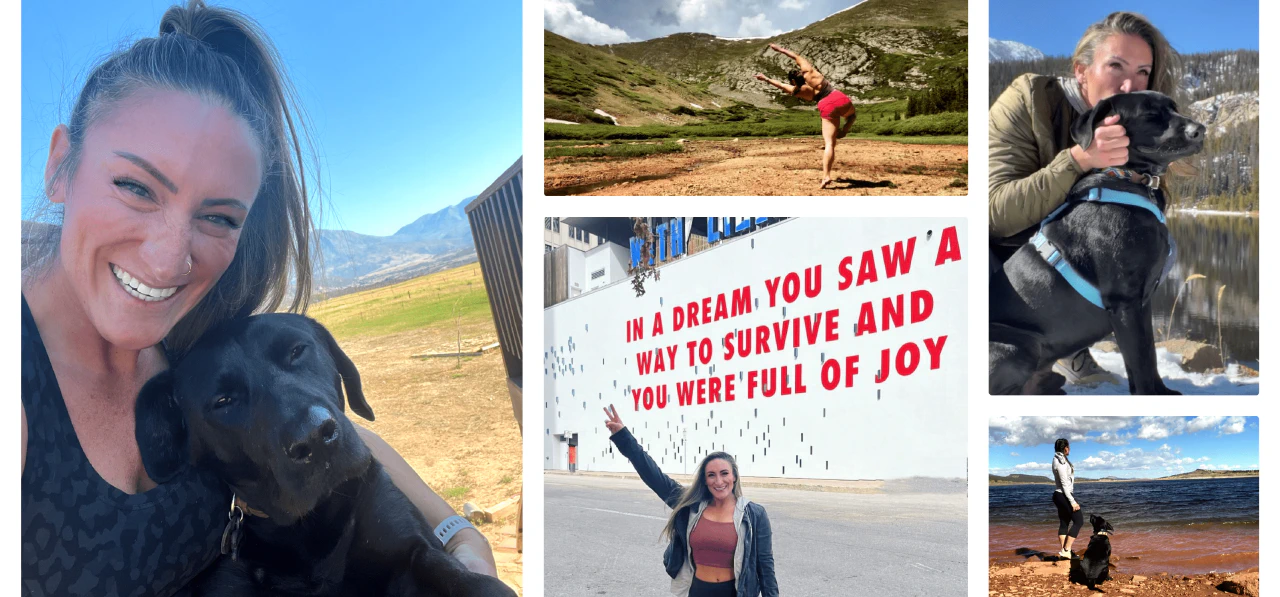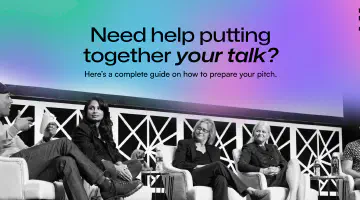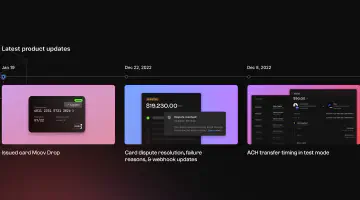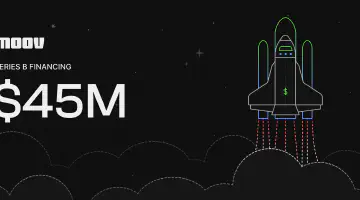
Why I joined Moov: Rah Chalmers
When I was eight years old, I discovered dance.
A little girl who wants to be a ballerina—sounds pretty typical, right?
For context, we were poor, like Section 8 housing, food stamps poor. I was the third of four kids in the only Middle Eastern/Scotch-Irish family in our neighborhood and I struggled with dyslexia. I never felt typical. But I liked to dance and the YMCA had free ballet classes. So my parents started taking me, and it turns out I was pretty good. Great, in fact.
I fell in love with the complexity, discipline, collaboration, systematic movement, and the big picture in every little step. To this day, when I dance, everything becomes absolutely quiet and still. I exist only in that singular moment. I get to just be unapologetically me.
Dance helped fund my education; I went to college on a performing arts scholarship. I was extremely fortunate but it was a lot of work. In addition to actually studying dance, I had to perform—which meant constant rehearsal and frequent travel. I used my scholarship so that I could earn a degree in technical writing and business administration. On top of my strenuous dance schedule, I took 22+ credit hours each semester and worked full-time. Again, typical… right? But I just kept telling myself it would be worth it when I was “done.”
But when I graduated I wasn’t “done.” I started throwing my resume into the corporate world. Seventeen years ago, that world was quite different than today. It was painfully primitive; the technology was disconnected and not user-friendly; onboarding and training were non-existent; processes were insanely complicated, but management stood by them because “it’s always been done this way.”
It was easy for me to see the chaos for what it was. At my first corporate job, despite trying my hardest to adhere to archaic and disjointed ways, I just couldn’t learn the way they wanted me to learn. I landed myself on a 90-day probationary period. They wanted me to follow specific processes, but those processes were never outlined or documented. Their “processes” only lived in the minds of those employees that had worked there for decades.
Then the housing market crashed, and they laid us all off anyway. But I decided from that point on that I was going to make it my mission to fix those processes instead of forcing them to work.
And that’s exactly what I did in my next role. It was a similar situation—opaque processes that were, this time, kept in a disastrous collection of binders with loose paperwork, missing pages, marked-through details, and scribbled amendments. So I built my own SharePoint site to replace these two dozen six-inch binders. I developed detailed processes that made sense through my dyslexic lens. I came in early and stayed late, all off the clock, to make it happen. When my VP suddenly scheduled time with me, I was anxious. I immediately thought, “Here we go again. Rah’s in trouble.”
Instead, he asked how I got a zero-percent error rate on all internal and external international shipping ops. Turns out, my system worked. It worked so well, in fact, that he even had me take over training the departments and applied my processes across the organization. This should have been a huge win. Unfortunately, the change upset the company’s veterans because, again, “it’s always been done this way.” It suddenly felt like I was in a no-win scenario again.
About this time, I was introduced to the term “startup.” A friend and former client told me about his life at a startup and said they were different. Different is all I have ever been, so different sounded great to me. I did a little research about startups. Denver, I discovered, was an emerging startup hub, so I loaded up a U-Haul and moved to Colorado—and I landed a job at a startup.
It was a potentially great health and wellness company, but it was struggling. I honestly thought they might go under soon. It was a bit disjointed, but a different kind of disjointed—one that wasn’t dragging decades of institutional baggage with it. I got to work and fixed their admin challenges—tracking systems, COGs, POS, training, front end, back end, everything. And the business started flourishing.
Problems are a proof of life and as it turns out, I perform well among problems because I see them as opportunities.
Share thisI thrive on solving unknowns and getting to wear multiple hats. Startups weren’t typical, but neither was I.
As the years progressed, I realized creating, fixing, and streamlining processes, collaborating and finding efficiencies was my hidden superpower. I helped build and grow a bunch of startups and even rose to become a COO at a medical lab technology company. While I loved the experience and people, a colleague mentioned to me this new fintech startup called Moov.
Wade, the co-founder and CEO, and I connected over the phone. And in true Rah fashion the conversation was anything but typical. It wasn’t like an interview at all—Wade and I had so much in common, right down to the art on our walls. And in the middle of that conversation, I realized that they weren’t just looking for an operations person or a logistics administrator. They were looking for me—and I’d been looking for them all this time too.
My whole life, I’d felt like a round peg trying to fit in a square hole. Everything was a struggle. Maybe it was growing up poor. Maybe it was my dyslexia—because there are still things that other people can do that I just simply can’t. But there are things I can do that no one else can, and I don’t think I fully realized that until I joined Moov.
From day one, it was clear that I had Wade’s complete trust. I didn’t have to build a presentation to convince anyone of anything. If I saw a need, a gap, a pain point, or a process that needed to be created or improved, I was empowered and the team supported me.
Share thisOne of my favorite parts about working at Moov is that you get to raise your hand and shape your role.
One day I’m building processes with the people operations team, the next I’m leading the inaugural year of fintech_devcon, helping shape Moov’s brand over the past three seasons, and representing the company at big events like Money20/20. It’s a really special feeling being able to influence the most foundational parts of Moov, and I’m grateful our leaders want every team member to have a say in how we contribute and build the company.
One of Moov’s values is “respect the craft.” This means honoring the creative process needed for every job role. While I’m not an engineer, I am a builder. I build processes. I improve operations and logistics. I am not only good…I am great at it! I am thinking five steps ahead of the day-to-day. Maybe that’s because I am a dancer and this, too, is a form of dance: Where are we now? Where are we going? How do we get there? It’s all about collaboration, complexity, and systematic movement—and I know the steps. I know how to advance us forward, and Moov trusts me to find the best way. They respect my craft.
Is it easy? Absolutely not! It’s hard. But I love it. Even though I didn’t have a typical life growing up, I don’t think I was ever meant for typical. I don’t have a typical job role and I’ve finally found a non-typical place to thrive. What I couldn’t find anywhere else, I found here.
Who I couldn’t be anywhere else, I can be here.
These are the reasons why I joined Moov. And why you should too.





